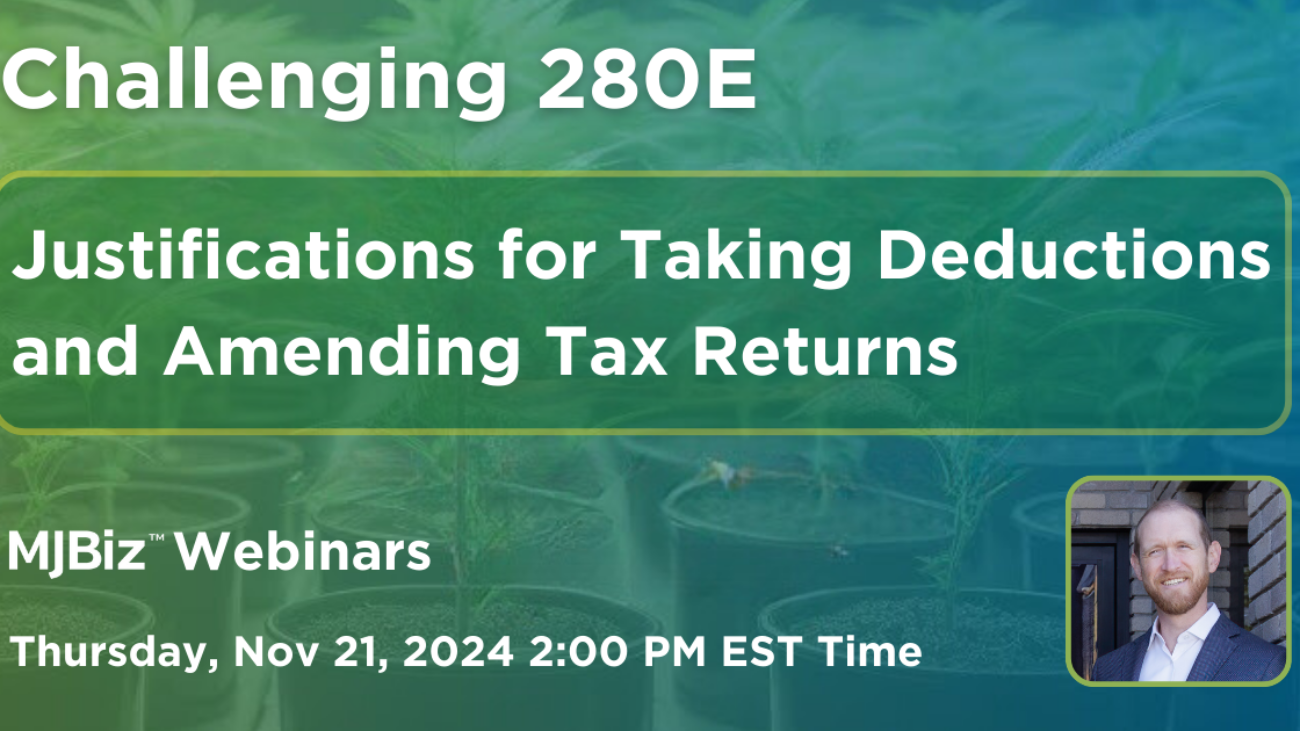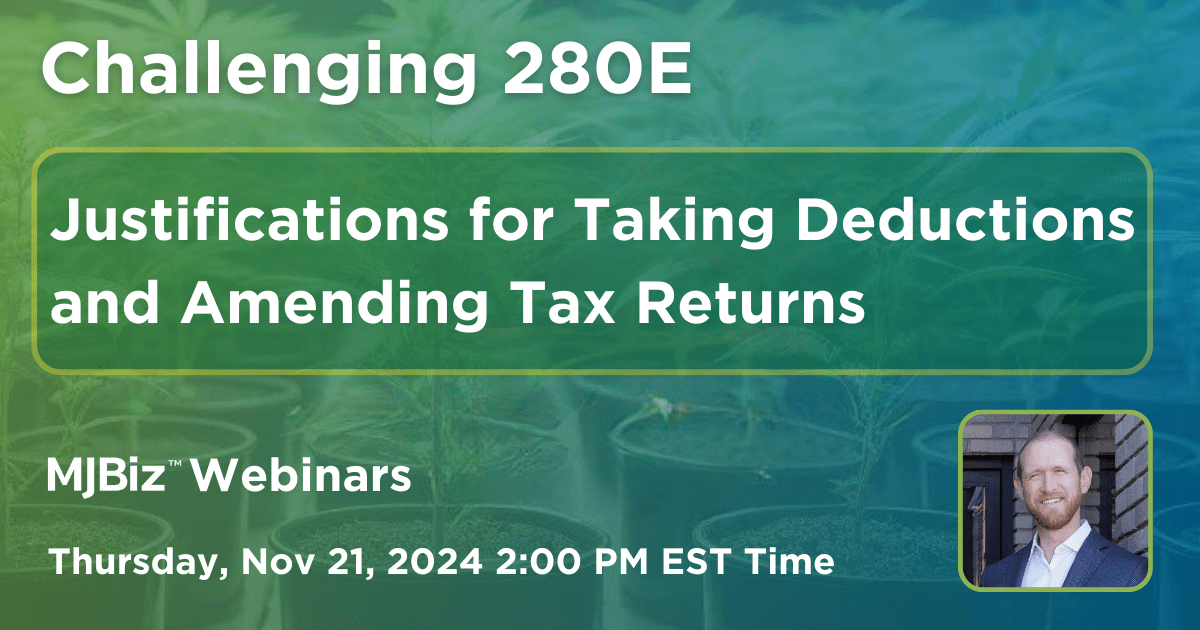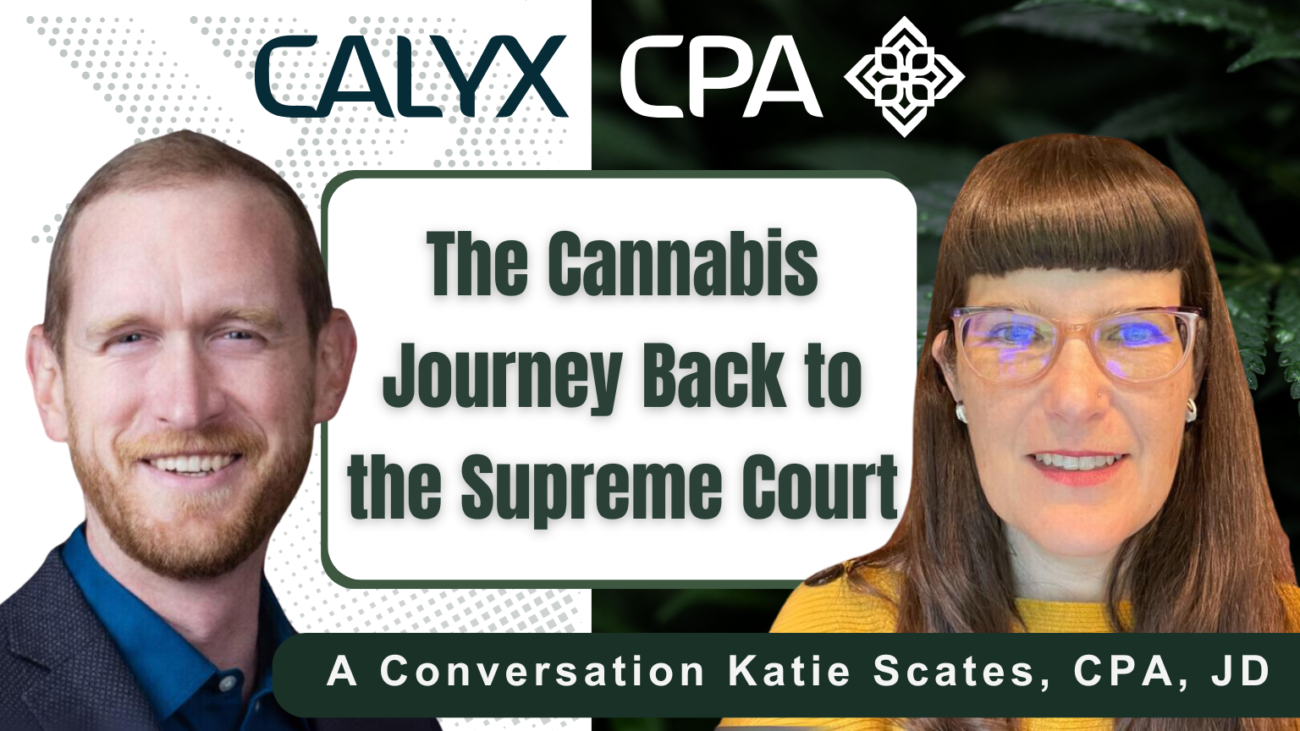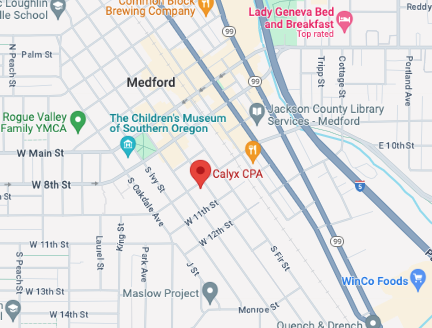
Challenging 280E: Why “Within the Meaning” Matters
Internal Revenue Code Section 280E is beginning to resemble a dried and brittle leaf, clinging to the branch of antiquated federal law long after the season has changed. Buffeted by constitutional challenges, scientific consensus, and mounting federal lawsuits, it grows weaker by the day. And yet, it still hangs on. The injustice has become surreal: it’s as if everyone agrees the sky is blue, yet the IRS and DEA insist it’s green…until “they” say otherwise. Meanwhile, cannabis operators are asked to pay a high price for their bureaucratic denial.
280E denies cannabis businesses the ability to deduct ordinary business expenses. Which, when tax returns are prepared with a surface-level understanding of 280E, can result in insurmountable tax debts. But what the tax code actually says is crucial: it disallows deductions for any trade or business that “consists of trafficking in controlled substances (within the meaning of schedule I and II of the Controlled Substances Act).” Notably, Congress chose the phrase “within the meaning of” rather than simply “listed as” a schedule I or II substance of the Controlled Substances Act (CSA). This subtle distinction opens the door to a powerful argument: if cannabis no longer meets the definition of a Schedule I or II substance, then 280E no longer applies, regardless of its formal classification.
The federal government itself is now in the process of undoing the outdated classification of cannabis as a Schedule I drug (a category reserved for the most dangerous substances like heroin, with “no accepted medical use”). In late August 2023, the Department of Health and Human Services (HHS), relying on input from the Food and Drug Administration (FDA) and the National Institute on Drug Abuse (NIDA), officially recommended that cannabis be moved to Schedule III of the CSA. This recommendation came after a formal scientific review, which concluded that marijuana clearly “meets the three criteria for placing a substance in Schedule III.” In other words, HHS found that cannabis has a lower potential for abuse than Schedule I/II drugs, has accepted medical use, and that its abuse poses only moderate dependence risk; the hallmarks of a Schedule III substance.
It’s not just health agencies reaching this conclusion. The Department of Justice’s Office of Legal Counsel (OLC) issued an opinion in April 2024 supporting a far more reasonable test for a drug’s accepted medical use. OLC determined that the DEA’s existing approach to evaluating “currently accepted medical use” was “impermissibly narrow,” and it endorsed the HHS two-part inquiry as a valid basis for recognizing medical use, even if the drug would not satisfy the DEA’s current approach.
However, there is ambiguity about how “binding” the HHS rescheduling recommendation is on the DEA. The OLC’s opinion stated, “HHS’s determinations are binding until the DEA initiates formal rulemaking, but it still must give HHS’s scientific and medical determinations significant deference.” The legal language of the Controlled Substances Act provides that the HHS Secretary’s scientific and medical findings are conclusive for scheduling decisions; the DEA cannot overrule HHS on those points. In practice, this means the DEA can’t simply ignore HHS’s conclusion that cannabis has medical use and lower abuse potential. While the DEA hasn’t yet finalized rescheduling, it is legally obligated to incorporate HHS’s findings in its decision.
Even in the face of the OLC’s ambiguous language as to whether or not the HHS’s recommendation is binding. It is the knee-jerk response of this author to ask the essential, albeit snarky question, “Who cares?” For our purposes, the key point is that the HHS, FDA, NIDA, and the DOJ now recognize, however informally, that cannabis no longer fits the meaning of a Schedule I/II substance, and therefore 280E no longer applies.
Despite the change in expert opinion, the IRS has adamantly insisted that 280E remains in force until cannabis’s Schedule I status is officially changed via DEA rulemaking. In mid-2024, as some cannabis companies began filing refund claims for past years’ taxes, the IRS issued a stern reminder that nothing has legally changed “with respect to the schedule or classification of marijuana.” The agency flatly stated that amended returns seeking refunds of 280E taxes “are not entitled to a refund…these claims are not valid,” and warned it is taking steps to stop them. In the IRS’s view, as long as cannabis is listed as Schedule I, 280E applies, period. But this strict stance overlooks the exact language of 280E. The statute ties deductibility to the meaning of Schedule I or II status, not the formal label.
To insist that 280E still applies because of a bureaucratic lag (the DEA’s final rescheduling rule is indefinitely pending) is to elevate form over substance. Tax law, like any law, must be interpreted in context. If Congress intended 280E to hinge solely on a DEA scheduling label, it could have said so, but instead it pointed to the Controlled Substances Act’s criteria.
This isn’t the first time the IRS has sprinkled salt on the industry’s attempts at using lawful tools to reduce the burden of 280E. Allow me to re-introduce Internal Revenue Code Section 471(c), enacted under the Tax Cuts and Jobs Act of 2018. This provision allows qualifying small businesses, those with under $29 million in gross receipts, to use inventory accounting methods that conform to their own books and records. In doing so, cannabis operators can classify a much broader range of expenses, including items like facility rent and payroll, as inventory-related costs. These expenses, when properly capitalized, become part of Cost of Goods Sold and thus remain deductible, even under the constraints of 280E.
In 2021, however, the IRS issued regulatory “guidance” stating that 471(c) could not be used to deduct expenses that were “otherwise disallowed” by another section of the tax code, effectively attempting to block cannabis operators from using it to mitigate 280E; which successfully deterred most accountants from using the method for years. But that guidance was not based on statutory law or court precedent; it was a regulatory interpretation meant to curtail a legitimate provision of the tax code. The regulation has no explicit legal language excluding cannabis businesses from using 471(c), and many tax professionals continue to rely on it as a now conservative, defensible strategy. For “smaller” operators, under $29 million in gross receipts, this remains one of the most practical ways to reduce tax liability while remaining fully compliant with existing law.
The reason this point bears emphasis is that while the IRS may issue strongly worded notices or guidance to discourage certain tax positions, its actual enforcement behavior often tells a different story. When a return is prepared in good faith, by a qualified professional, and based on a reasonable interpretation of the tax code, the IRS may choose not to pursue it, particularly when the position is well-documented and legally defensible. This dynamic has played out with 471(c), despite early warnings, the IRS has not disputed the strategy in tax court.
While not without risk, the opportunity to amend past returns and seek refunds is real, and for some, the potential relief could be significant. Others may choose simply to move forward, leaving the past in the past, and begin preparing returns without complying going forward. Both choices are bold. But when grounded in a well-reasoned tax position, supported by qualified professionals, and weighed against the ongoing cost of overpayment, many may find it worth the risk.
About the Author
Justin Botillier is a cofounder and CEO of Calyx CPA, a firm specializing in tax preparation, accounting, and business consulting for the cannabis and psychedelic industries. With two decades of experience in taxation and over a decade serving the cannabis industry, Justin and his team have helped clients save millions of dollars by leveraging aggressive and defensible strategies to mitigate the impact of 280E.

















